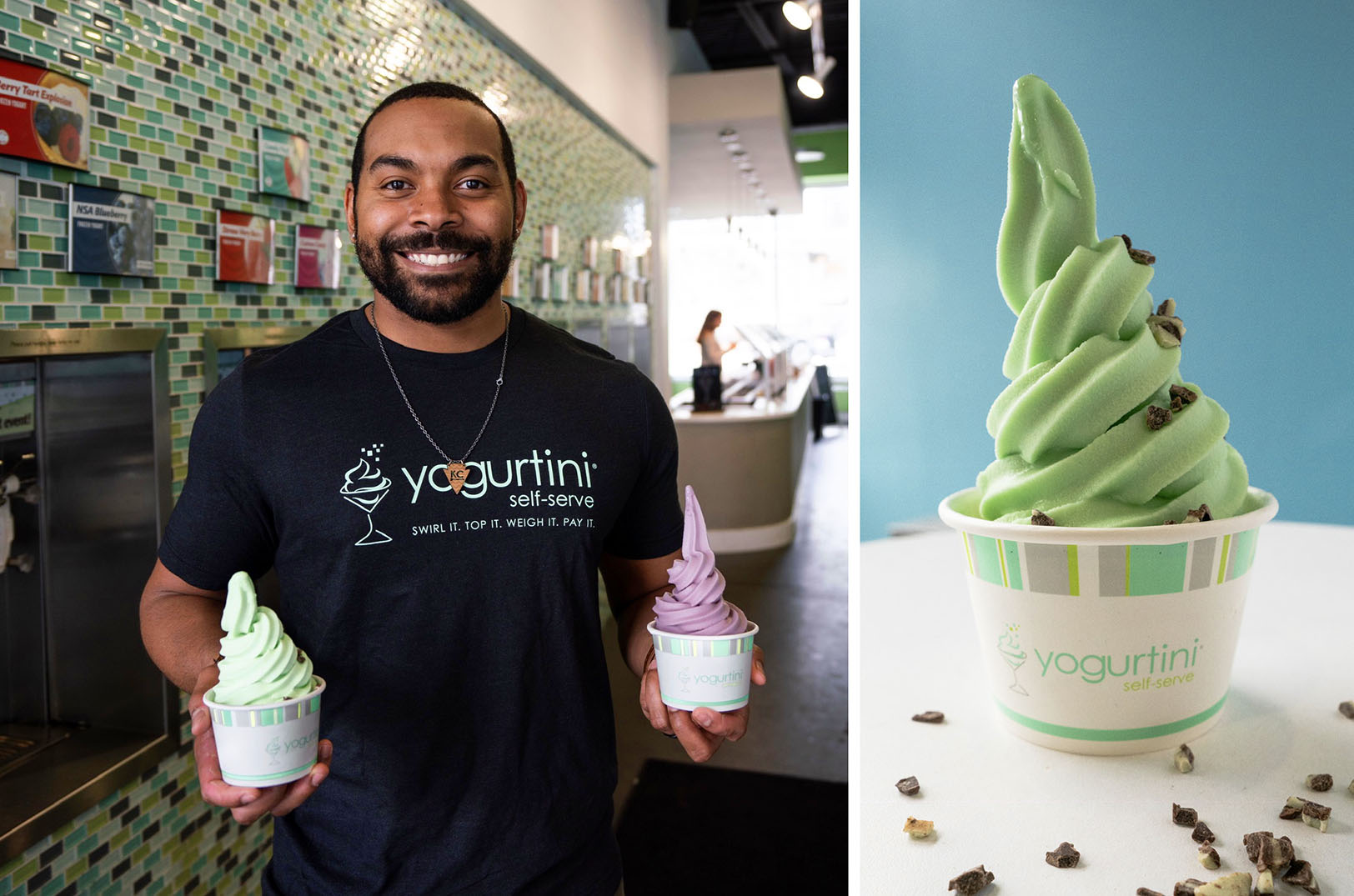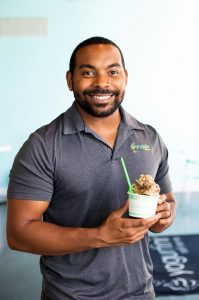Running a franchise can require as much passion and perseverance as any other entrepreneurial endeavor — including those in the startup space, said Isaac Collins.
Would-be business owners shouldn’t get caught up in the jargon of what is and isn’t “real” hustle when trying to craft a livelihood for themselves or their families, he said.
A young, but experienced veteran of Kansas City’s more traditional small business scene, Collins pivoted in recent years to the role of co-founder — an experience that allowed him to use his expertise and lessons learned as a franchise holder to help build SERV Nutrition, a purpose-driven protein company.
“I wanted to become a ‘real entrepreneur’ and so for the last two and a half years, I’ve been living the life of a ‘real entrepreneur,’” said Collins, owner of two metro Yogurtini locations, reflecting on his decision to step away from SERV to focus on his first love in business — franchising.
“It’s been amazing,” he said of his time with the startup — which produces and markets protein pods with a focus on fitness and giving — alongside his friends Austin Wilcox and Wondabeka Ashenafi, who continue to lead the venture.
Click here to learn more about the success of SERV and its growing distribution footprint.
“I got to experience all the things with ‘real startup life’ and what that entails,” Collins explained, detailing his choice to leave the startup world to refocus his passions and spend more time with his family. “Getting out of the, ‘true’ startup world has given me a new respect for franchising. There’s several different variations or levels and looks [to entrepreneurship] and it’s all real entrepreneurship.”

Yogurtini
And real is what Collins does best, he said, noting it was access to real world opportunities that got him started down the entrepreneur’s path to begin with.
“[In college, there was a] capstone course and for the whole semester you would write a business plan, like you’re going to run a Rocky Mountain Chocolate factory franchise store,” Collins said of the assignment which saw his alma mater at Missouri Western State University partner with Rocky Mountain Chocolate Factory and Steve Craig, a St. Joseph billionaire and CEO of Craig Realty.
A semester well spent, Collins drafted a business plan that ultimately won him his own Rocky Mountain Chocolate Factory and served as the blueprint for the store in Williamsburg, Iowa, backed by Craig.
“I got into business at 22-years-old … it was an amazing experience. I loved it. And then I used the profits from that to come back to [my hometown] Kansas City and buy into Yogurtini,” he said.
Building a franchise that delivered enough profit to dive immediately into another venture took work — the kind not outlined in a corporate manual, Collins noted, referencing common misconceptions that franchising is a simple, plug-and-play avenue to success in business.
“The branding and the product is strong, it’s known — that’s why you pay royalties. But [there are other challenges]. It’s almost cliche and simple to say, but you actually have to like what you do every single day,” he said, noting the importance of making a franchise stand out.
“It’s taken eight years to get to the point where I’m like, ‘OK, now I get it.’ I’m ready to really step into full business ownership. We’re looking at doing six to seven stores in the next three to four years and got a lot of that skill set from my experience at SERV.”
Focused on the current stores — which will soon include a third location; this time built from the ground up — Collins is tapping into his startup arsenal and exploring ways to make his Yogurtini locations unique to Kansas City.
“We are going to shift from a discount brand with a lot of specials [which is common in franchising] to the brand that is premium, high quality and people love it because it’s fun and we have personality,” he said, adding that community support will play a role in achieving such a status.
“We do a lot of giving back here. We do a lot of donating to local charities. We do fundraisers, we host parties here, we do profit shares. My businesses will always pour into the community with money and support.”
Finding ways to localize a franchise is key to success with the model, Collins added.
“People don’t buy products. They buy the interaction with the business and the business owner. So bringing a unique spin on it is going to make that business that much more personal, that much more successful,” he said, highlighting the importance of having a community mindset as a franchise entrepreneur that also intersects with passion.
“My friends who have failed in franchising [did so] because they have gotten into something that they do not care about.”
Entrepreneurs who don’t care, don’t fight, Collins added, specifically noting ways founders can over-romanticize things such as “hustle and grind.”
“I’ve had a lot of success. I’ve also had a lot of failure and failed businesses,” he said, noting the failure of two networking marketing companies and a real estate investment that cost him more than $100,000.
“All of those things have made me the entrepreneur I am today,” Collins said. “I think the worst thing you can do is stop. So if you’re failing, just keep keep moving forward.”
This story is possible thanks to support from the Ewing Marion Kauffman Foundation, a private, nonpartisan foundation that works together with communities in education and entrepreneurship to create uncommon solutions and empower people to shape their futures and be successful.
For more information, visit www.kauffman.org and connect at www.twitter.com/kauffmanfdn and www.facebook.com/kauffmanfdn





































